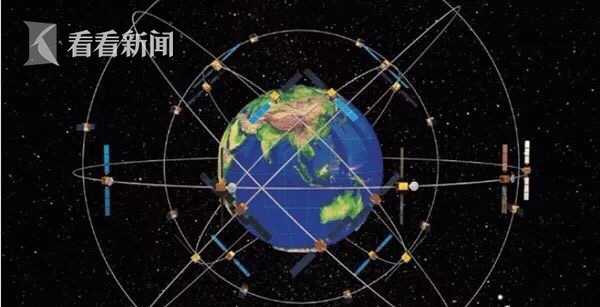
The five functional modules of the operating system are processor management, memory management, device management, file management and operation management. Processor management The most basic function of processor management is to process interrupt events. After configuring the operating system, various events can be processed.
The functions of the computer operating system include: processor management, memory management, device management, file management, job management and other functional modules. Processor management. The most basic function of processor management is to handle interrupt events. The processor can only detect interrupt events and generate interrupts and cannot process them.
Storage management is divided into several functions: storage allocation, storage sharing, storage protection, and storage expansion.Equipment management has the following functions: equipment allocation, equipment transmission control, and equipment independence. File management: file storage space management, directory management, file operation management, file protection.
The operating system should usually include the following five functional modules: (1) Processor management. When multiple programs are running at the same time, solve the problem of processor (cpu) time allocation. ( 2) Operation management. The program to complete an independent task and its required data constitute a task.
The function of the operating system is mainly reflected in the management of computer resources - microprocessors, memory, external devices, files and tasks. The operating system sets this management function into the corresponding program management module, and each management module is responsible for a certain function.That is, the five functions of the operating system.
The operating system has five functions: processor management: mainly controls and manages the work of the CPU. Storage management: mainly carry out memory allocation and management device management: mainly manage basic input and output device file management: responsible for the organization, storage, operation and protection of computer files, etc.

There are the following types of management systems: the management system of the finished product set. This kind of system is a stereotyped management system, which makes a small number of functional adjustments to the software through the parameter settings of the software.
Transaction Processing System (TPS): Operators and supervisors are used to input transactions, events, sort, list, merge updates, output detailed reports, lists and summaries, etc. Management Information System (MIS): Middle managers are used to input general transaction data and simple models to process routine reports.
Adgecal management system Academic management system is one of the most core management systems of the school, which is responsible for arranging and managing the school's teaching activities. It includes curriculum setting, teaching plan, teacher arrangement, examination management and other contents.
VMware vSphere: It is a virtualization management platform that can be used to manage virtual machines, storage and networks, etc. Nagios: It is an open source network monitoring system that can be used to monitor network devices, servers and applications, etc.
Financial subsystem: providing the function of financial management information; Decision support subsystem: make the logistics information system reach a higher level.
ERP management system brand Youyou, Jindie International Software, Wave Software, Dingjie Software, Zhenghang Software. Use friends.
1. System management refers to the information technology system that manages enterprises, and file management is one of the five major functions of the operating system.First, network management refers to the centralized management of resources on the network by network administrators through network management programs.
2. System Management regards organizational components as interrelated and interdependent systems, so it advocates applying the system concept to the management concept.
3. System management refers to the process of maintaining, managing and monitoring computer systems. As an important part of enterprise informatization construction, the importance of computer system management cannot be ignored.
UEFA Champions League live streaming free-APP, download it now, new users will receive a novice gift pack.
The five functional modules of the operating system are processor management, memory management, device management, file management and operation management. Processor management The most basic function of processor management is to process interrupt events. After configuring the operating system, various events can be processed.
The functions of the computer operating system include: processor management, memory management, device management, file management, job management and other functional modules. Processor management. The most basic function of processor management is to handle interrupt events. The processor can only detect interrupt events and generate interrupts and cannot process them.
Storage management is divided into several functions: storage allocation, storage sharing, storage protection, and storage expansion.Equipment management has the following functions: equipment allocation, equipment transmission control, and equipment independence. File management: file storage space management, directory management, file operation management, file protection.
The operating system should usually include the following five functional modules: (1) Processor management. When multiple programs are running at the same time, solve the problem of processor (cpu) time allocation. ( 2) Operation management. The program to complete an independent task and its required data constitute a task.
The function of the operating system is mainly reflected in the management of computer resources - microprocessors, memory, external devices, files and tasks. The operating system sets this management function into the corresponding program management module, and each management module is responsible for a certain function.That is, the five functions of the operating system.
The operating system has five functions: processor management: mainly controls and manages the work of the CPU. Storage management: mainly carry out memory allocation and management device management: mainly manage basic input and output device file management: responsible for the organization, storage, operation and protection of computer files, etc.

There are the following types of management systems: the management system of the finished product set. This kind of system is a stereotyped management system, which makes a small number of functional adjustments to the software through the parameter settings of the software.
Transaction Processing System (TPS): Operators and supervisors are used to input transactions, events, sort, list, merge updates, output detailed reports, lists and summaries, etc. Management Information System (MIS): Middle managers are used to input general transaction data and simple models to process routine reports.
Adgecal management system Academic management system is one of the most core management systems of the school, which is responsible for arranging and managing the school's teaching activities. It includes curriculum setting, teaching plan, teacher arrangement, examination management and other contents.
VMware vSphere: It is a virtualization management platform that can be used to manage virtual machines, storage and networks, etc. Nagios: It is an open source network monitoring system that can be used to monitor network devices, servers and applications, etc.
Financial subsystem: providing the function of financial management information; Decision support subsystem: make the logistics information system reach a higher level.
ERP management system brand Youyou, Jindie International Software, Wave Software, Dingjie Software, Zhenghang Software. Use friends.
1. System management refers to the information technology system that manages enterprises, and file management is one of the five major functions of the operating system.First, network management refers to the centralized management of resources on the network by network administrators through network management programs.
2. System Management regards organizational components as interrelated and interdependent systems, so it advocates applying the system concept to the management concept.
3. System management refers to the process of maintaining, managing and monitoring computer systems. As an important part of enterprise informatization construction, the importance of computer system management cannot be ignored.
Free sports events uefa champions league app android
author: 2025-02-05 18:38 casino plus free 100
casino plus free 100
975.43MB
Check DigiPlus stock
DigiPlus stock
829.51MB
Check bingo plus update today
bingo plus update today
434.35MB
Check Casino Plus GCash login
Casino Plus GCash login
736.12MB
Check Free sports events uefa champions league app android
Free sports events uefa champions league app android
194.89MB
Check Hearthstone arena class win rates reddit
Hearthstone arena class win rates reddit
912.83MB
Check Walletinvestor digi plus
Walletinvestor digi plus
536.53MB
Check Casino Plus
Casino Plus
778.37MB
Check TNT Sports
TNT Sports
776.44MB
Check Casino Plus
Casino Plus
883.77MB
Check European Cup live
European Cup live
131.89MB
Check UEFA European championship
UEFA European championship
446.36MB
Check European Cup live
European Cup live
359.19MB
Check UEFA Champions League standings
UEFA Champions League standings
729.16MB
Check Casino redeem
Casino redeem
869.25MB
Check Casino Plus
Casino Plus
968.64MB
Check UEFA European championship
UEFA European championship
737.16MB
Check Hearthstone arena
Hearthstone arena
423.41MB
Check Bingo Plus stock
Bingo Plus stock
844.19MB
Check Casino Plus free 100
Casino Plus free 100
329.46MB
Check Hearthstone Wild Decks
Hearthstone Wild Decks
294.96MB
Check Casino Plus
Casino Plus
931.49MB
Check UEFA live free
UEFA live free
151.48MB
Check Bingo Plus stock
Bingo Plus stock
168.44MB
Check 100 free bonus casino no deposit GCash
100 free bonus casino no deposit GCash
882.63MB
Check Arena Plus login
Arena Plus login
176.46MB
Check Hearthstone Arena class tier list 2024
Hearthstone Arena class tier list 2024
175.36MB
Check Casino free 100 no deposit
Casino free 100 no deposit
495.63MB
Check Hearthstone arena class win rates reddit
Hearthstone arena class win rates reddit
239.19MB
Check UEFA Champions League live streaming free
UEFA Champions League live streaming free
615.61MB
Check DigiPlus Philippine
DigiPlus Philippine
549.68MB
Check UEFA Champions League live streaming app
UEFA Champions League live streaming app
371.45MB
Check Bingo Plus
Bingo Plus
785.69MB
Check TNT Sports
TNT Sports
734.16MB
Check UEFA live free
UEFA live free
114.65MB
Check UEFA EURO
UEFA EURO
744.57MB
Check
Scan to install
UEFA Champions League live streaming free to discover more
Netizen comments More
2850 DigiPlus Philippine
2025-02-05 18:26 recommend
2550 Free sports events uefa champions league app android
2025-02-05 18:24 recommend
2854 UEFA Champions League standings
2025-02-05 18:06 recommend
1211 UEFA Champions League standings
2025-02-05 17:36 recommend
2340 DigiPlus
2025-02-05 17:24 recommend